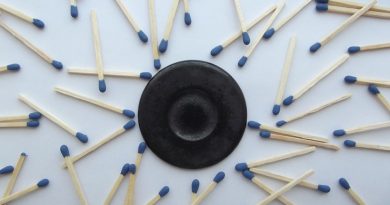Fertility or Infertility: Role of Zinc in pregnancy
Zinc is an important mineral and a trace element, essential for male/female fertility enhancement. Its deficiency in the body will result in the person contracting variety of infertility issues. Females may suffer from loss of pregnancy, while males will experience low sperm count.
Know the reproductive organs
To understand better Zinc’s role in male/female reproductive health, you need to understand better the reproductive organs. Prostate in males is an organ having rich supply of zinc, while uterus in women is rich in zinc. Reproductive-wise, prostate in men is equivalent to uterus in women. Although they might appear different, they do require similar nourishment, which is zinc in sufficient amount. This is because they both come from similar embryonic origin.
If women lack in or have low supply of zinc, then they may face hormonal imbalance, lack of ovaries release or egg maturation and irregular menses. Zinc deficiency in women who tries to conceive may only increase chances of having low birth weight babies, pregnancy induced hypertension or spontaneous abortion. Besides losing iron from her menses, she also stands to lose zinc and magnesium.
Reproductive organs in men like testicles and prostate will become functionless without zinc. If zinc is not derived in proper supply then prostate is likely to swell. For sperm maturation and production, zinc is essential. This heavy metal antagonism can effectively combat arteriosclerosis and can cure erectile dysfunction faced by men. Semen is white due to presence of zinc. About 15 mg. of zinc is lost with a single ejaculation. Zinc is also crucial for DNA repair & regulation, immune system modulation, proper cell division, regeneration, repair and growth. This anti-oxidant protector can also combat free-radicals present in the body.
Zinc is termed to be an essential factor for 600+ enzyme systems also including anti-oxidant enzymes such as superoxide dismutase and catalaze. To release energy, it ranges from vitamin and carbohydrate metabolism. Deficiency in zinc will only cause the person to experience loss of smell, taste, infertility and poor wound healing.
Zinc is said to be absorbed in the body very slowly and hence, even its minor deficiency will result in poor sperm motility, quality and low sperm count. However, supplementing zinc in 60 mg for 50 days can help reverse such semen parameters suffered by infertile men. Its intake and presence in the body helps raise testosterone levels and sexual libido.
Consulting a professional will allow you to know better how to increase fertility rate.
Treatment: Ayurveda Treatment for Infertility, Ayurveda Treatment for Low Sperm Count, Ayurveda Treatment for Libido
Related Link : best ayurvedic sexologist in bolton, sexologist in cherpulassery, sexologist in karipur,
best ayurvedic sexologist in leeds, sexologist in kondotty, punefemaleinfertility, sexologist in walayar,
sexologist in pattambi, ayurveda infertility treatment richmond, sexologist in shoranur, best ayurvedic sexologist in coventry, ayurveda infertility treatment washington, ayurveda infertility treatment manchester, sexologist in manjeri, best ayurvedic sexologist in croydon, sexologist in perinthalmanna, ayurveda infertility treatment mumbai, sexologist in ayyanthole, yeast infections, sexologist in vadakkencherry, new delhi female infertility, ayurveda infertility treatment boston, ayurveda infertility treatment sandwell, ayurveda infertility treatment savannah,sexologist in yakkara, sexologist in tanur,ayurveda infertility treatment kashipur uttrakhand, ayurveda infertility treatment seattle, best ayurvedic sexologist in bradford, sexologist in kuttippuram, sexologist in manama, perintalmanna femalein fertility, premature ejaculation treatment in manikonda, ayurveda infertility treatment baltimore, sexologist in mannuthy, ayurveda infertility treatment pathanamthitta, sexologist in nenmara, sexologist in tenhipalam, ayurveda infertility treatment north charleston, sexologist in velur and sexologist in hawalli.
Originally posted 2021-09-29 03:49:26.





